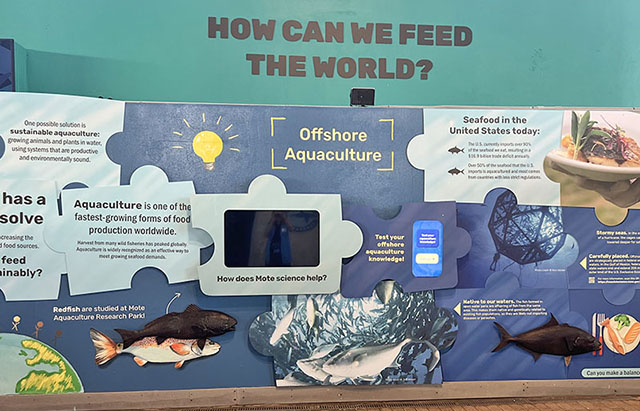A no-cost extension was approved through 12/31/24. This extension will allow time to analyze and write up the research findings, present at the 2024 Aquaculture America conference, and continue the blog series “AquaCurious” on the Florida Sea Grant website, without needing an additional teaching position.
To date, the researcher has conducted 154 interviews with various stakeholder groups, including aquatic farmers, commercial fishermen, recreational fishermen, seafood buyers, and politicians, as well as 19 focus groups with the public across Florida, Texas, Louisiana, and Southern California. Specifically, 71 interviews encompassing all stakeholder groups and 6 public focus groups were conducted along the Gulf Coast of Florida, covering areas such as Tampa, St. Petersburg, Sarasota, Venice, Fort Myers, Naples, and the Keys. Additionally, two separate weeks of interviews and focus groups are planned in Alaska for this spring (February and May). Currently, the researcher is transcribing and cleaning the Florida data and developing a codebook for analysis. Preliminary findings suggest that offshore aquaculture may not be as controversial as portrayed in the media or public comments on pending farm permits, and that the Sarasota community’s resistance to the Velella Epsilon project diminishes when a more diverse group of stakeholders is involved compared to those represented in public comments on pending farm permits.
